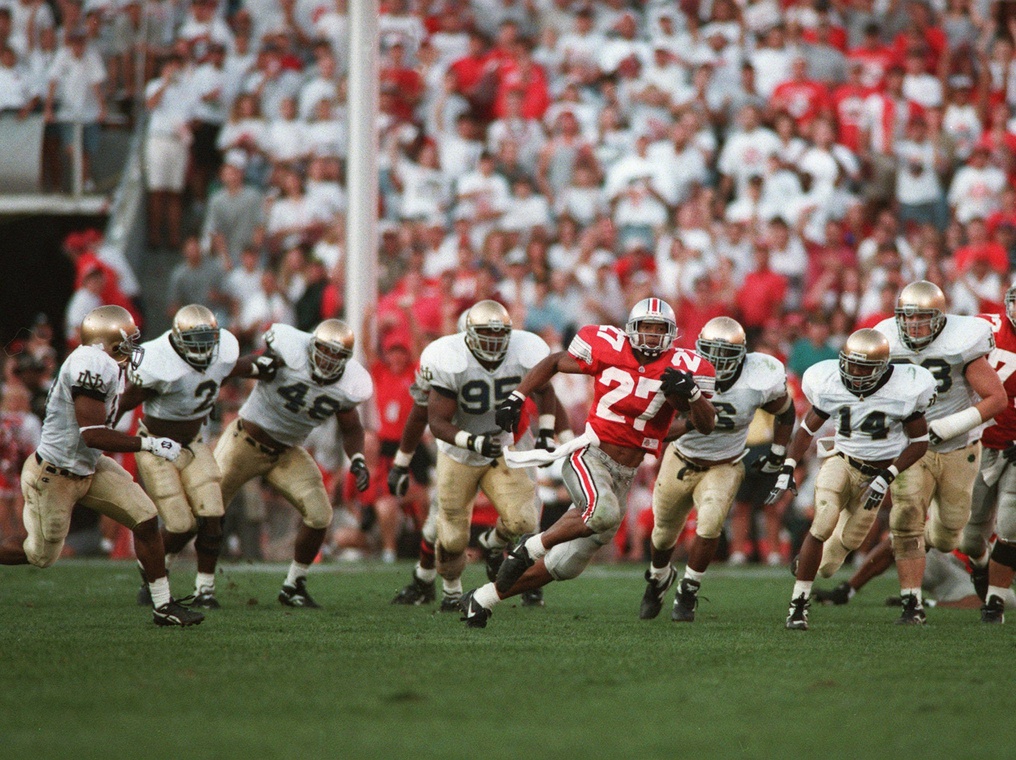On Friday, the Department of Justice asked a federal judge to deny the settlement proposal in the House v. NCAA case, which would allow for revenue-sharing but impose other athlete compensation restrictions.
In a scathing, 11-page filing, the DOJ raised concerns that the settlement proposal doesn’t solve the antitrust issues that the NCAA’s business model allegedly imposes. The department says the settlement allows the NCAA “to continue fixing the amount its member schools can pay students for the use of their name, image, and likeness (‘NIL’),” the filing says.
It’s asking Northern District of California Judge Claudia Wilken to either refuse to grant the settlement, or to “make clear that approval of the Proposed Settlement does not constitute a judgment of the competitive impact of the Salary Cap Rule or a determination that the Salary Cap Rule complies with the antitrust laws.”
The DOJ’s main issue with the settlement appears to be its cap on revenue-sharing. The proposal lays out a formula for the maximum amount of money schools can share with their athletes each year. In the first year, for example, the cap is set at $20.5 million. But the DOJ suggested the cap “still functions as an artificial price cap on what free market competition may otherwise yield.”
It notes professional sports salary caps are made legal because players’ unions and leagues negotiate them through a formal collective bargaining process. “The agreements in those professional sports leagues are legally distinct from the salary cap at issue here because they are the result of collective bargaining by labor unions. Both sides concede the Proposed Settlement is not a collective bargaining agreement or a resolution of a ‘labor dispute’ under the federal labor laws.”
It’s the second attempt in two days by federal agencies to make changes to aspects of college sports—just days before President Biden leaves office. On Thursday, the Department of Education released guidance suggesting Title IX, a statute requiring gender equity in college sports, would apply in some fashion to the House v. NCAA revenue-sharing payments.
Biden’s DOJ has challenged the NCAA on antitrust grounds before. It got involved with the NCAA v. Alston Supreme Court case and participated in the lawsuit that ultimately eased the NCAA’s restrictions on transfers.




![[Subscription Customers Only] Jun 15, 2025; Seattle, Washington, USA; Botafogo owner John Textor inside the stadium before the match during a group stage match of the 2025 FIFA Club World Cup at Lumen Field.](https://frontofficesports.com/wp-content/uploads/2026/02/USATSI_26465842_168416386_lowres-scaled.jpg?quality=100&w=1024)
![[Subscription Customers Only] Jul 13, 2025; East Rutherford, New Jersey, USA; Chelsea FC midfielder Cole Palmer (10) celebrates winning the final of the 2025 FIFA Club World Cup at MetLife Stadium](https://frontofficesports.com/wp-content/uploads/2026/02/USATSI_26636703-scaled-e1770932227605.jpg?quality=100&w=1024)











